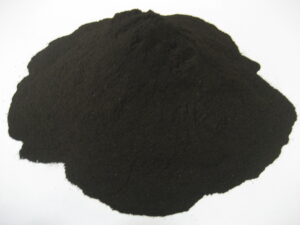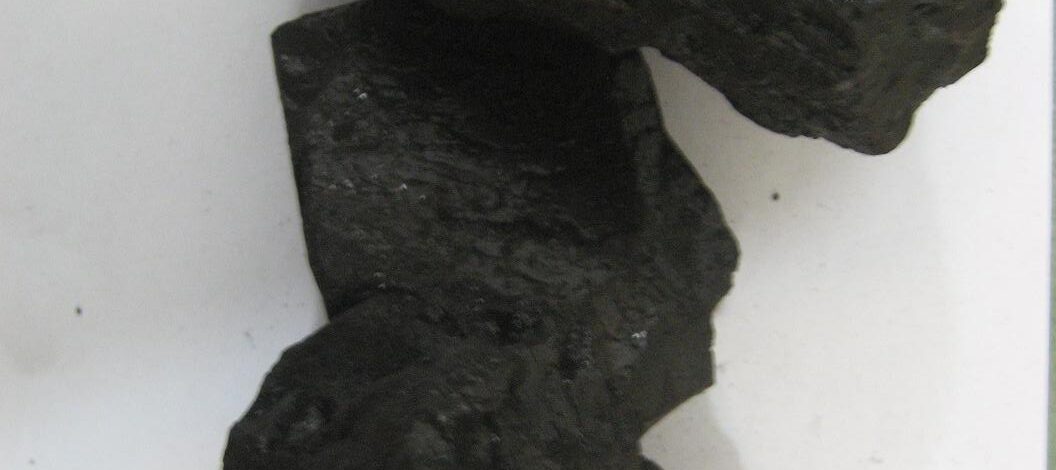Large Resources, Natural Formation, and Industrial Applications
What is Gilsonite?
Gilsonite, also known as natural asphalt, uintaite, or natural bitumen, is a solid hydrocarbon resin with a high carbon content. It is black, brittle, and glossy, with properties similar to petroleum asphalt but with a higher purity and lower solubility.
With significant global reserves, Gilsonite is widely used in oil and gas drilling, asphalt modification, ink production, and industrial sealants. This article explores the largest Gilsonite resources worldwide, its natural formation process, and its extensive industrial applications.

Large Gilsonite Resources Around the World
Gilsonite deposits are found primarily in the United States, Iran, Colombia, Venezuela, and China. These countries hold significant reserves that support global industries.
1. United States – The Largest Producer
The Uinta Basin in Utah is home to the world’s largest and highest-quality Gilsonite deposits. The U.S. leads global production, exporting Gilsonite to industries in Asia, Europe, and North America.
2. Iran – The Second Largest Gilsonite Reserve
Iran holds massive Gilsonite reserves in Kermanshah, Ilam, and Lorestan provinces. Iranian Gilsonite is widely used in drilling fluids, asphalt modification, and waterproofing materials.
3. Colombia and Venezuela – South American Deposits
Colombia and Venezuela have significant natural bitumen reserves, although extraction and commercial production are still developing. These regions offer potential future sources for Gilsonite-based industries.
4. China – Emerging Gilsonite Supplier
China has small but growing Gilsonite deposits, mainly used in construction and industrial applications.
How Gilsonite is Formed in Nature
Gilsonite forms over millions of years through the natural transformation of organic matter buried deep within the Earth’s crust. The process involves:
1. Organic Matter Deposition
Dead plant and marine life decompose, accumulating in sedimentary basins rich in organic material.
2. Burial and Heat Exposure
Over time, these deposits are buried under layers of sediment and exposed to heat and pressure, gradually converting organic material into heavy hydrocarbons.
3. Natural Polymerization
Unlike crude oil, which remains liquid, Gilsonite undergoes polymerization, turning into a solid, asphalt-like substance that is resistant to chemical breakdown.
4. Uplift and Exposure
Geological shifts cause Gilsonite veins to rise near the Earth’s surface, where they are mined in vertical, pure veins rather than underground pools like petroleum.
Industrial and Commercial Uses of Gilsonite
Gilsonite, also known as natural bitumen or uintaite, is a solid hydrocarbon resin with high carbon content and excellent binding properties. It is widely used in oil and gas, road construction, industrial coatings, printing inks, and more.
With large reserves in the United States, Iran, and Colombia, Gilsonite remains a crucial raw material for global industries. This article explores the top industrial and commercial uses of Gilsonite and why its demand is rising.
Top Industrial Uses of Gilsonite
1. Oil and Gas Drilling (Drilling Muds and Well Cementing)
Gilsonite is a key additive in oil and gas drilling fluids, offering:
- Wellbore stability by preventing collapse
- Reduced fluid loss in high-pressure wells
- Improved cement bonding for stronger well integrity
Its high-temperature resistance and sealing ability make it essential for deep and offshore drilling.
2. Asphalt and Road Construction
Gilsonite is widely used as an asphalt binder and modifier to enhance:
- Durability and longevity of road surfaces
- Resistance to temperature changes (heat and cold)
- Flexibility and crack prevention in pavements
It is commonly used in highway paving, airport runways, and heavy-traffic roads.
3. Waterproofing and Industrial Sealants
Gilsonite’s water-resistant properties make it ideal for:
- Roof coatings and construction sealants
- Corrosion protection for pipelines and metal structures
- Waterproofing membranes for buildings and infrastructure**
Its long-lasting performance reduces maintenance costs for construction projects.
4. Foundry and Metal Casting
In metal casting and foundries, Gilsonite serves as a binding agent in sand molds, ensuring:
- Stronger mold structure
- Improved surface finish on metal products
- Reduced gas defects during casting
5. Carbon Black and Rubber Industry
Gilsonite is used in rubber and carbon black production, improving:
- Elasticity and durability of rubber products
- UV resistance and strength in tires and plastics
- Adhesion properties in industrial rubber applications
6. Chemical and Industrial Coatings
Gilsonite is a natural reinforcing agent in protective coatings, providing:
- Stronger adhesion to surfaces
- Increased chemical and weather resistance
- Long-lasting gloss and color retention in industrial paints**
It is widely used in marine, automotive, and metal coatings.
Commercial Uses of Gilsonite
1. Printing Inks and Paint Pigments
Gilsonite is a key ingredient in high-quality printing inks, offering:
- Deep black pigmentation
- Enhanced gloss and color stability
- Stronger adhesion on various surfaces
2. Agriculture and Soil Stabilization
In agriculture, Gilsonite helps:
- Improve soil stability and moisture retention
- Prevent soil erosion in farming lands
- Strengthen dirt roads for agricultural transport
3. Adhesives and Industrial Binders
Gilsonite is a natural resin binder used in:
- Wood and furniture adhesives
- Industrial-grade glue formulations
- Construction and road-building materials
Why Gilsonite is a Preferred Industrial Material
1. Cost-Effective and Sustainable
- Requires less material usage due to its high purity
- Reduces maintenance costs for roads and coatings
- Eco-friendly and naturally occurring
2. Superior Performance in Harsh Conditions
- Resistant to high temperatures and chemicals
- Long-lasting durability in extreme environments
- Improves strength and flexibility in industrial applications
Advantages of Using Gilsonite
Gilsonite is a natural, cost-effective, and high-performance material with numerous benefits, including:
1. Eco-Friendly and Sustainable
- A naturally occurring, non-toxic material
- Requires less processing compared to synthetic alternatives
- Reduces the need for chemical additives in industrial applications
2. High Performance and Durability
- Increases longevity in asphalt, coatings, and construction materials
- Enhances strength in industrial adhesives and rubber compounds
3. Cost-Effective for Industrial Applications
- Requires less material usage due to its high purity
- Reduces maintenance costs for roads, infrastructure, and coatings
Future Trends in the Gilsonite Industry
As industries evolve, the demand for Gilsonite is expected to rise, driven by:
1. Expanding Oil and Gas Exploration
- Increased global energy demand will boost drilling fluid consumption
- Gilsonite’s role in well cementing and pressure control will continue to grow
2. Growth in Sustainable Road Construction
- Governments and infrastructure projects are adopting longer-lasting, eco-friendly asphalt solutions
- Gilsonite-modified asphalt is increasingly used in highway and airport runway projects
3. Innovation in Industrial Coatings and Sealants
- The coatings industry is shifting toward natural, high-performance materials
- Gilsonite-based paints and protective coatings offer stronger durability and environmental benefits
4. Rising Demand for Eco-Friendly Printing Inks
- As businesses seek sustainable printing solutions, Gilsonite’s natural resin properties make it an attractive alternative to petroleum-based inks.
- Gilsonite Usage in Ink and Paint Manufacturing

